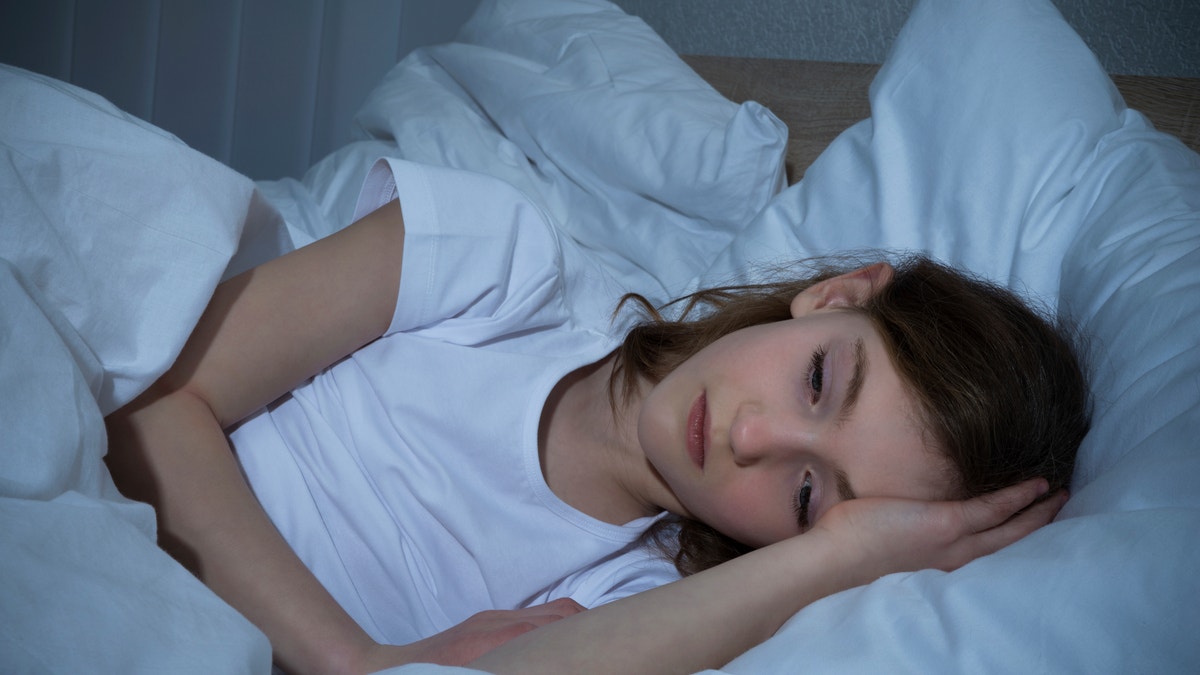
Innocent Girl In Bedroom Having Sleeplessness Night (AndreyPopov)
As a teenager, John* struggled with severe anxiety, depression and suicidal thoughts. And although he slept between 12 and 15 hours each night, he still found it difficult to wake up for school on time in the morning.
The Miller Place, New York man was diagnosed with major depressive disorder and generalized anxiety disorder (GAD) and he tried both inpatient and outpatient therapy and countless types of medications but nothing worked.
“I went through pretty much all of the [medication] options that were out there for me at the time,” John, now 24, said.
Although it seemed like there were no other treatments that could help him, John decided to undergo 15 sessions of electroconvulsive therapy (ECT). Around the same time, he also met Dr. Avram R. Gold, medical director of the department of medicine’s Sleep Disorders Center at Stony Brook University in Smithtown, N.Y.
“While I do not have experience with depression, I’m willing to bet it will be easier to control,” Gold recalled telling John's father at the time.
Gold diagnosed John with sleep apnea and implanted a palate expander. After he healed, his sleep improved, he had more energy and he even lost about 40 pounds.
“After the palate expander, I found that I could have 6 to 8 hours of sleep and feel very well rested,” he said.
His depression lifted too and he no longer needed more ECT treatments.
“For me, it really changed the path I was on,” he said.
The sleep apnea-depression link
The National Sleep Foundation estimates between 2 to 3 percent of children have sleep apnea and between 10 and 20 percent of those who snore do as well.
Children who are overweight, have autism spectrum disorder, Down syndrome or other neurodevelopment disorders are more likely to have sleep apnea than the general pediatric population, said Dr. Carole Marcus, director of the Sleep Center at the Children’s Hospital of Philadelphia and a spokesperson for the American Academy of Pediatrics.
The National Institutes of Health estimate that 11 percent of children between ages 13 and 18 have major depressive disorder. In 2015, approximately 3 million kids between ages 12 and 17 had at least one major depressive episode in the past year.
Depression can increase a child’s risk for substance abuse and suicide, which is the third leading cause of death for children between the age of 10 and 24, according to the Centers for Disease Control and Prevention.
What’s more, children up to age 18 with sleep apnea are more likely to also have depression, according to a meta-analysis in the Journal of Clinical Sleep Medicine.
“We know that children with sleep apnea have a number of behavior and quality-of-life issues,” said Dr. Adelle Cadieux, a child psychologist at Helen DeVos Children’s Hospital in Grand Rapids, Michigan. “Both of these conditions are underecognized in children. Both parents and pediatricians tend to miss the diagnosis.”
Although the association between sleep apnea and depression is not clear, experts say there are a few possible reasons.
Since sleep apnea affects a child’s quality of sleep, it can disrupt behavior, concentration, memory and mood. The low oxygen levels affect hormones and the brain, which can then lead to depression.
“Anybody who has had a poor night’s sleeping feels bad the next day. For children with sleep apnea, that’s happening every night,” Cadieux said.
Also, many kids with sleep apnea are obese, which in itself is closely linked to depression.
Yet children with snoring and sleep-disordered breathing have more symptoms of depression whether they are obese or not, according to a study in the journal SLEEP.
“Chronic depression is a consequence of chronic stress and sleep apnea is the single largest and unrecognized contributor to chronic stress,” Gold said.
Sleep apnea has also been linked to low serotonin levels, which is associated with depression.
What’s more, sleep apnea can lead to resistance to leptin, a hormone that suppresses appetite. The result is weight gain and obesity, according to the meta-analysis in SLEEP. For an obese teen, low self-esteem and depression can exacerbate the symptoms.
Know the signs
Experts agree that the signs of both sleep apnea and depression make them hard to diagnose.
“The way depression looks in a young child can be very very different from an adolescent and even that can look different from what you see in an adult,” Marcus said.
Distinct changes in behavior like irritability, crying over minor incidents, sleeping more or less than usual and appetite changes are all red flags. While some children will become withdrawn, others will act out.
In preschool children, “you may not hear them say, ‘I’m sad,’” Marcus said.
Snoring, choking, gasping for air, labored breathing and increased sleepiness are all signs of sleep apnea.
Experts noted that symptoms of insomnia, ADHD and fatigue may be due to sleep apnea and not depression alone. .
“They should always first rule out sleep apnea because it’s treatable without medication, Gold said.
How to get help
If you suspect your child has sleep apnea, depression or both, talk to your child’s pediatrician first to determine the best course of action.
Not all kids will need to have a sleep study and your doctor may be able to tease out other factors that affect your child’s sleep.
If your child has both conditions, he will need to be treated. Even if sleep apnea is managed, your child will likely need help with the depression, too, Marcus said.
Other treatments include a nasal steroid, continuous positive airway pressure (CPAP) and a weight-loss plan.
Having tonsils and adenoids removed can help children with sleep apnea if they’re removed when a child is young.
John is now healthy and working towards a master’s degree in social work. He also sees a therapist for maintenance treatment.
“It really is a pretty incredible change from when I look back at where I was,” he said.
*name has been changed